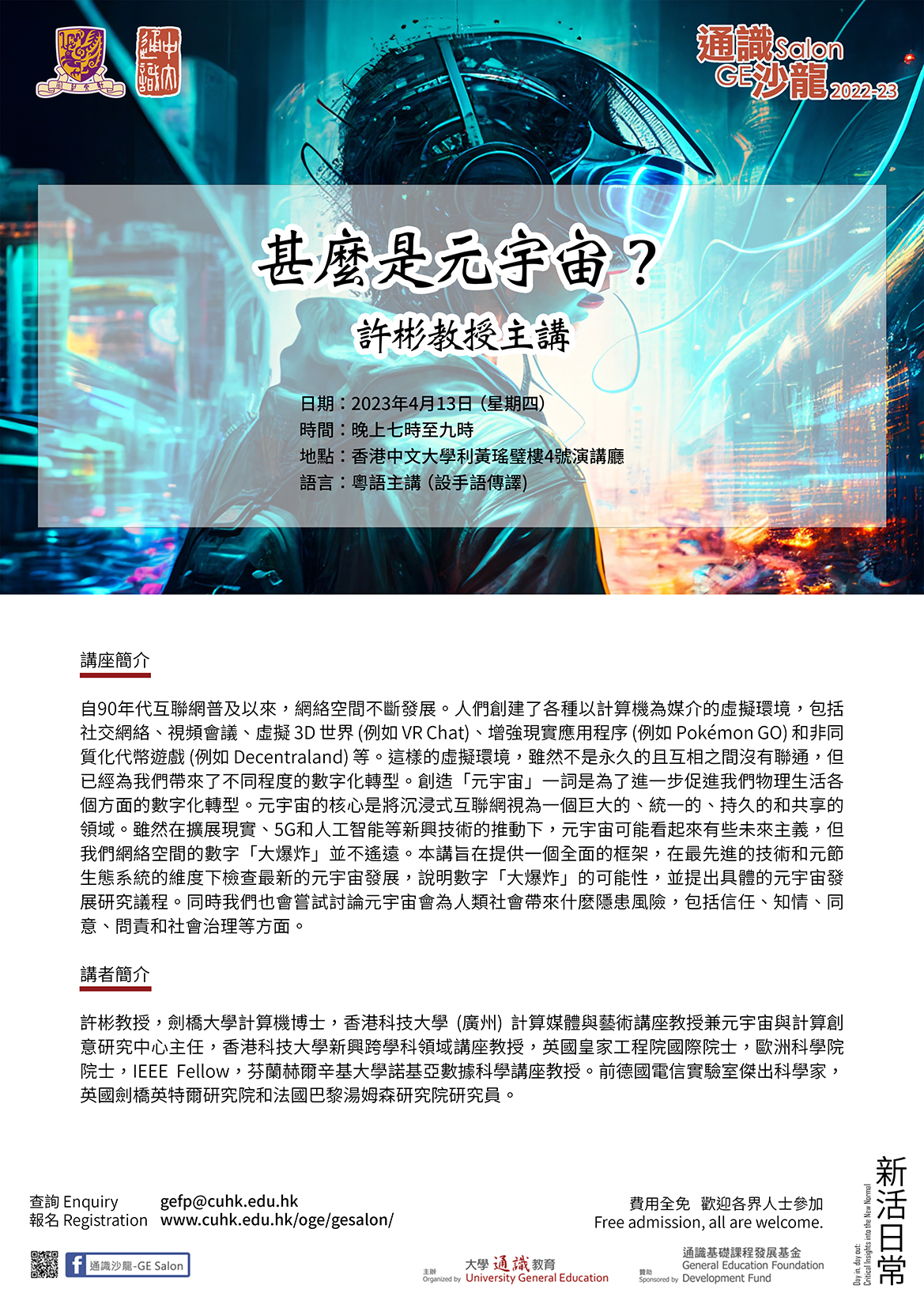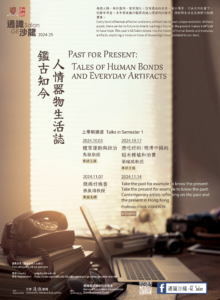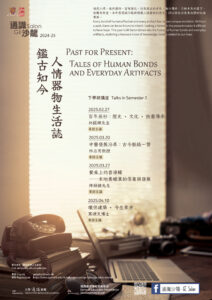The aim of GE Salon is to explore issues of common human concern from cross-disciplinary and cross-cultural perspectives, with a view to encouraging students to reflect upon questions related to the contemporary world and to foster intellectual discussions on campus.
GE Salon – Plastic in Mao’s China
Speaker: Prof. WU Ka Ming塑膠是現代生活和工業科技發展的重要物料。但塑膠這個19世紀中葉才出現的化工物料是如何及何時進入現代中國的?塑料又是如何中介及影響政治與社會文化?此講座介紹幾個毛時代的塑料產品和影像呈現,初步分享塑膠與政治、社會和中國現代性的微妙關係。
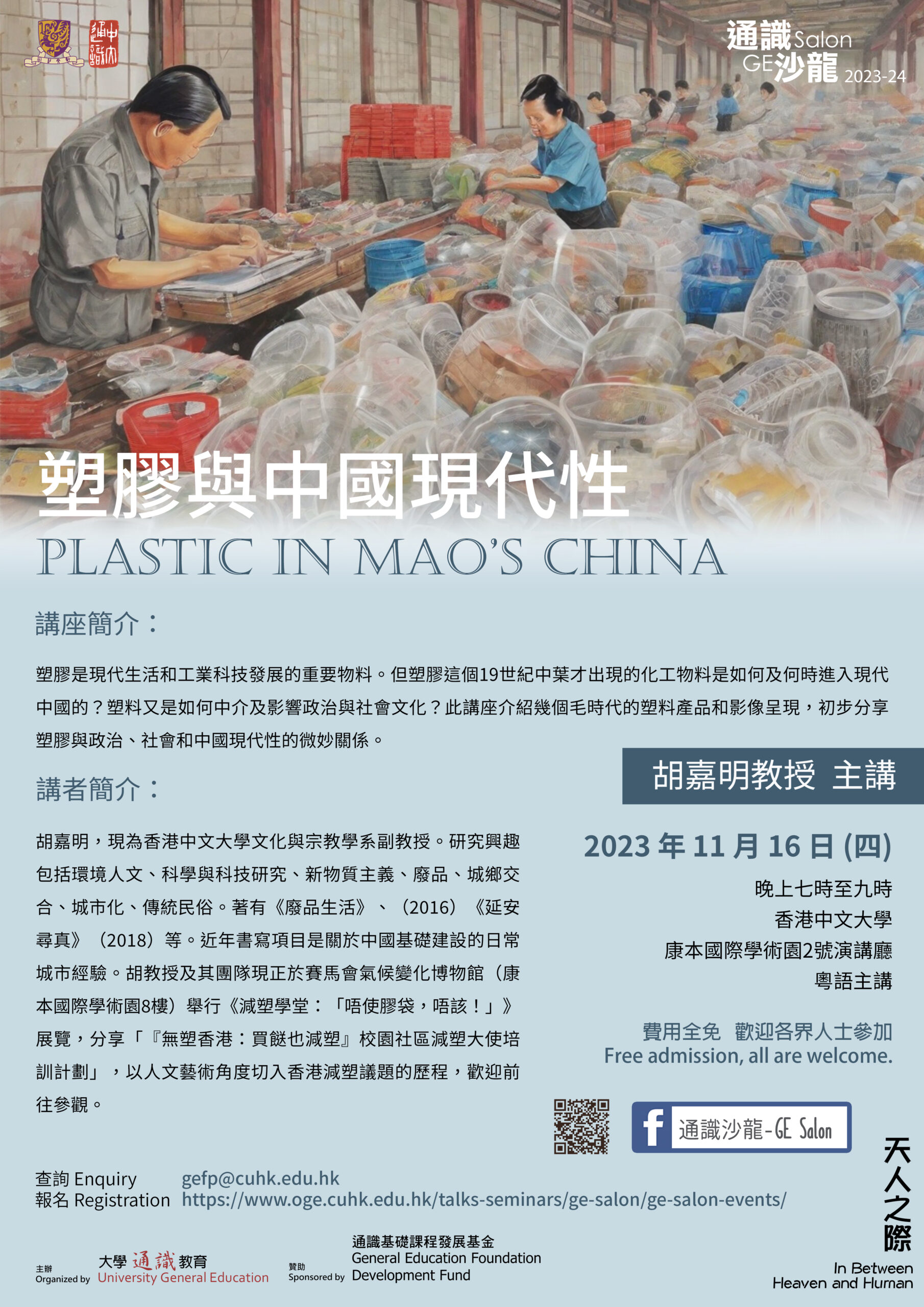 2023-24 In Between Heaven and Human
2023-24 In Between Heaven and Human GE Salon – A meteorologist’s perspective on God, Time, and Human Free Will
Speaker: Prof. CHANG Chih-Pei這個演講開始會介紹,爲什麽在人工智慧的時代裏,不管大學裏各科系所學的專業領域為何,可能都需要注意哲學。 對唯物論者,因爲物理定律決定論,宇宙大爆炸時就已決定一切,人類的自由意志只是假象。犯罪者身不由己,應該被懲罰嗎?對有神論者,上帝在創世就知道人類所有行爲。犯罪來自上帝給人類的自由意志。但是上帝所知不能改變,人怎麼會有自由意志?兩個相反的世界觀有同樣的挑戰。 物理科學還在繼續發展,但是宗教教義不易改變。聖經裏都是神在時間之内(A理論)的故事,信徒如果希望上帝回應祈禱,也在A理論框架裏才説得通。可是基督宗教堅持上帝在時間外(B理論),因爲擔心神的主權被侵犯。 氣象教科書常用自由波的共振來解釋強迫波動,可是分析馬登—朱利安振盪(Madden-Julian Oscillation, MJO)會發現它和自由波沒有共振,因爲物理和散頻都根本不同。混沌機制和輻射强迫互不干涉,解釋了爲什麽對十天溫度預報沒信心,但是卻相信更久的全球暖化。這個啓示是,上帝讓人類有自由意志時依然可以握有絕對主權。這不但有利於對上帝製造罪惡指控的辯護,也對一個著名上帝先知的故事,做出了顛覆性但是更合邏輯的闡釋。
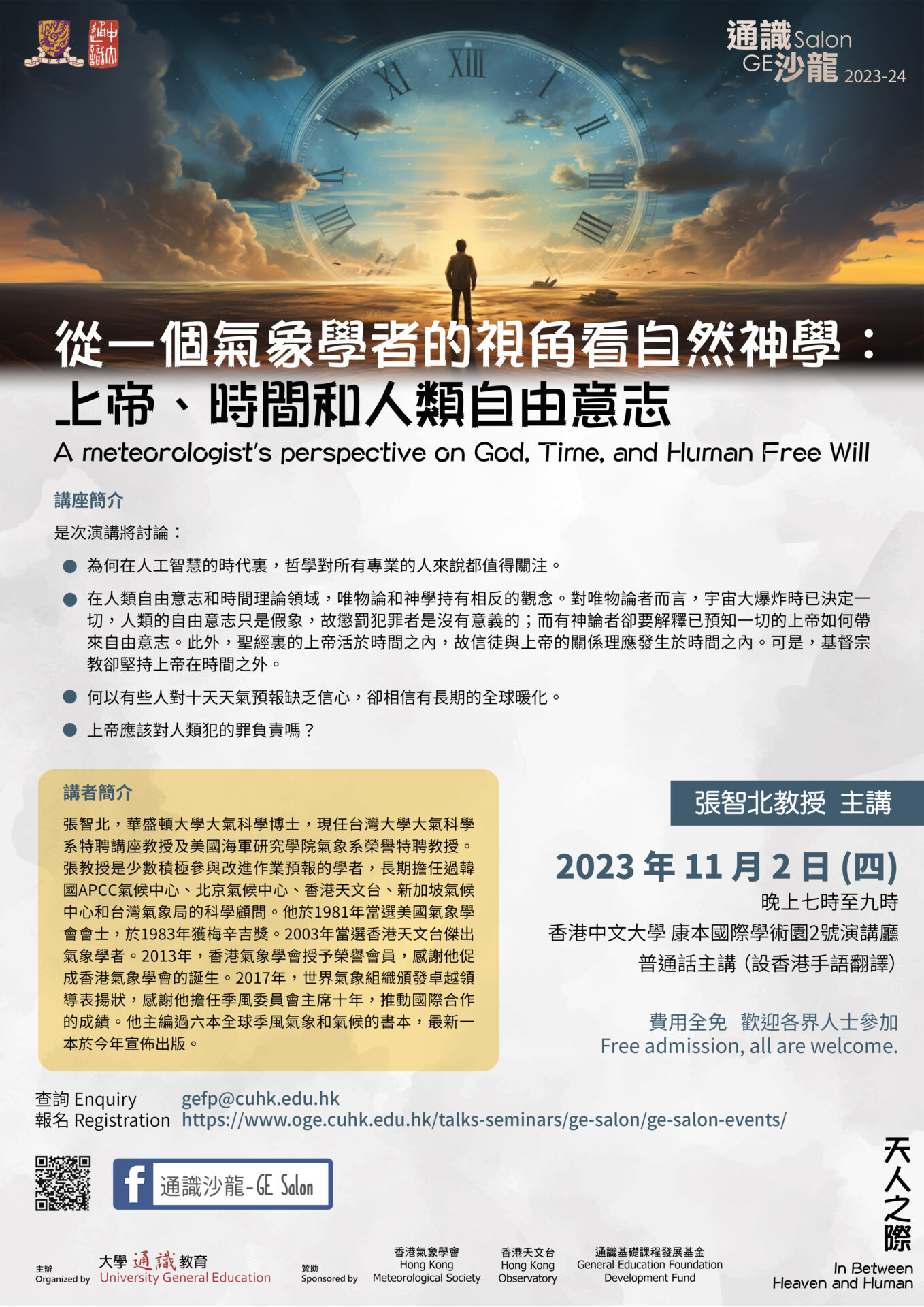 2023-24 In Between Heaven and Human
2023-24 In Between Heaven and Human Who are you? What is your mother tongue? – Cantonese and Cultural Identity in Transregional and Transtemporal Perspectives
Speaker: Prof. CHING May Bo近年來,香港、廣州等粵語地區的一些年青人,都提倡保衛粵語。誠然,語言是人們的身份和文化認同不可或缺的部分,但到底他(我)們在講什麼樣的粵語?所謂的「香港粵語」和「廣州粵語」又是否有那麼大的差異?講者並非語言學家,僅嘗試從史料所見和個人在兩地生活之體會,以跨時空的視角探討相關的問題與現象。
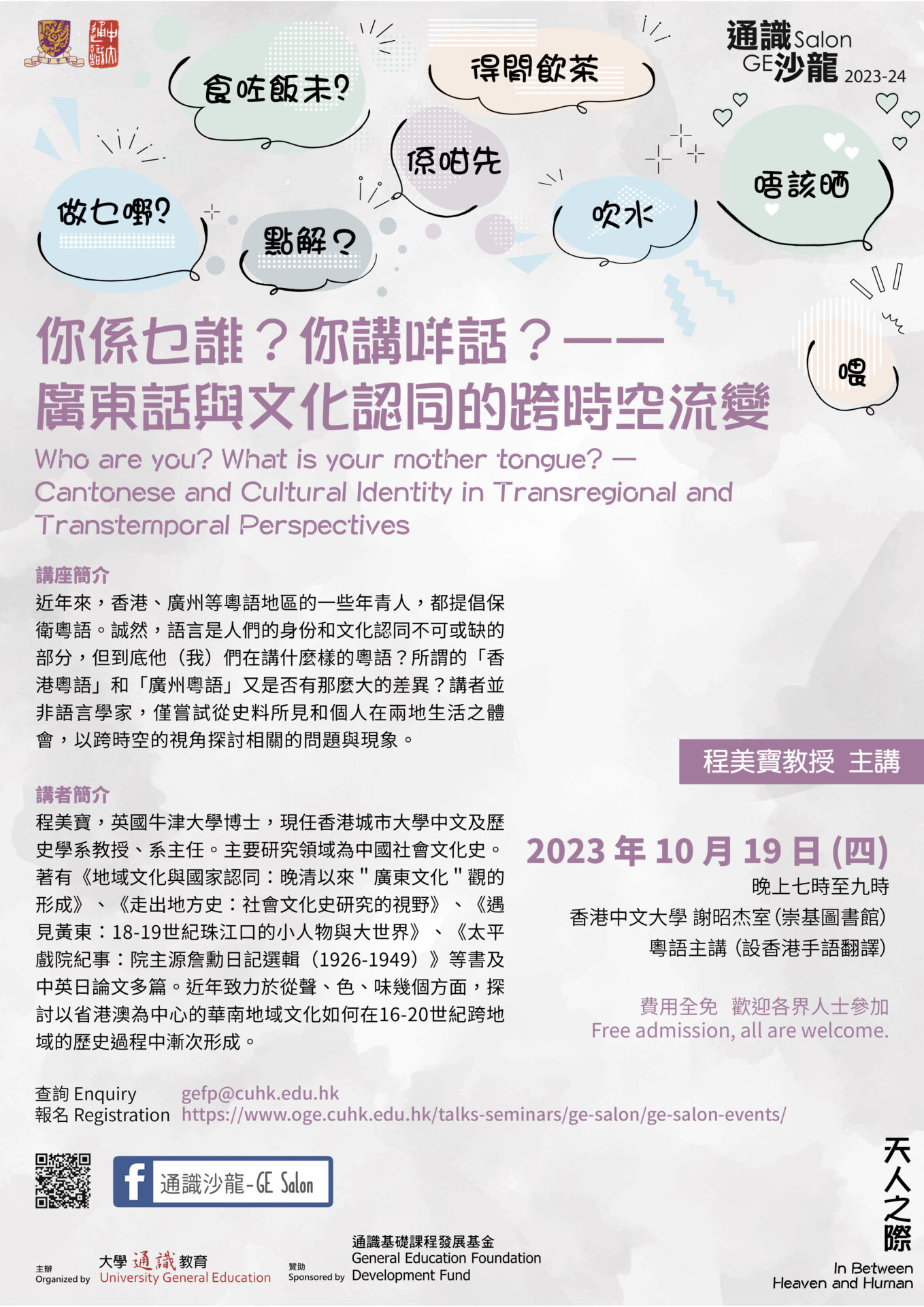 2023-24 In Between Heaven and Human
2023-24 In Between Heaven and Human Leisure and Politics: Bathing Culture in Colonial Hong Kong
Speaker: Prof. POON Shuk Wah閒暇與政治有密不可分的關係。此講座以港英時期的海浴政策發展為例子,論述二次大戰前的港英政府及香港華人體育會,如何通過發展海浴設施及推廣海浴活動,以期達至穩定華人社會的目的。
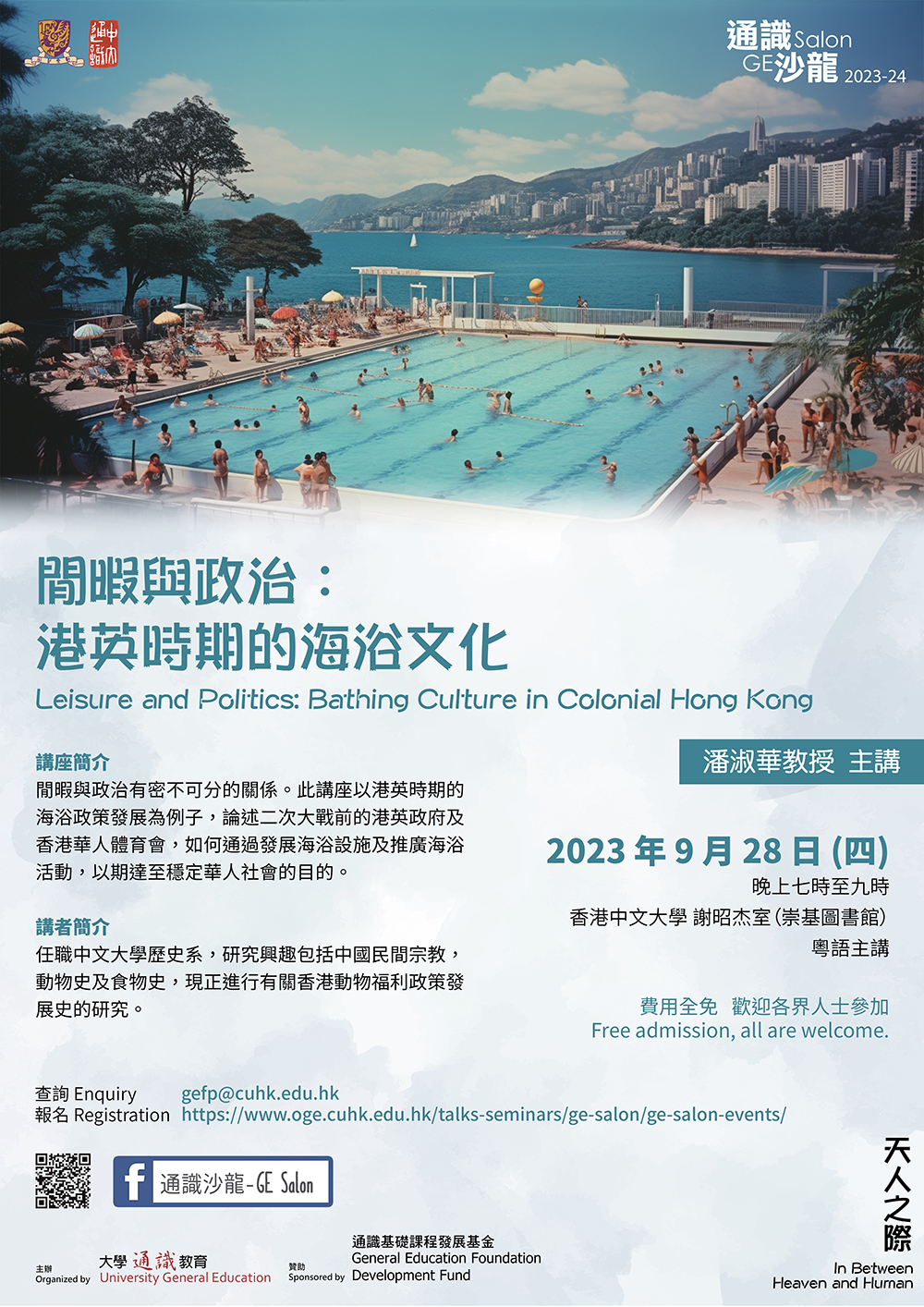 2022-23 Day in, day out: Critical Insights into the New Normal
2022-23 Day in, day out: Critical Insights into the New Normal Food: A Philosophical Journey
Speaker: Prof. Joe Y.F. LAU許多人認為哲學過於抽象,對社會沒有實質貢獻。本講座以食物哲學為主題,旨在指出哲學與日常生活其實息息相關。 食物牽涉經濟、政治、文化、環境和科技等範疇。在現代社會,我們通常只接觸到食物製成品,對食物背後的各種現象認識有限。我們的飲食行為往往在不知不覺中受文化、政治和商業利益所影響。哲學思考可以幫助我們反省日常飲食行為背後的理據和價值觀。通過分析和批判,我們會發現很多看似合理的事情,並非必然正確。這樣我們才能主宰自己的健康和生命,從而改變社會。 長久以來,不少哲學和文化思潮,把心靈和肉體分割成對立的東西。哲學思考是心靈的特質,擁有較高的價值。口腹之欲則反映肉體的渴求,是探索真理的負累。食物哲學的討論,可以幫助我們理解何以這種對立是錯誤的。飲食是美好生活的一部分,經哲學重塑的飲食行為,不單與追求真善美並無衝突,更能推動我們改變世界。
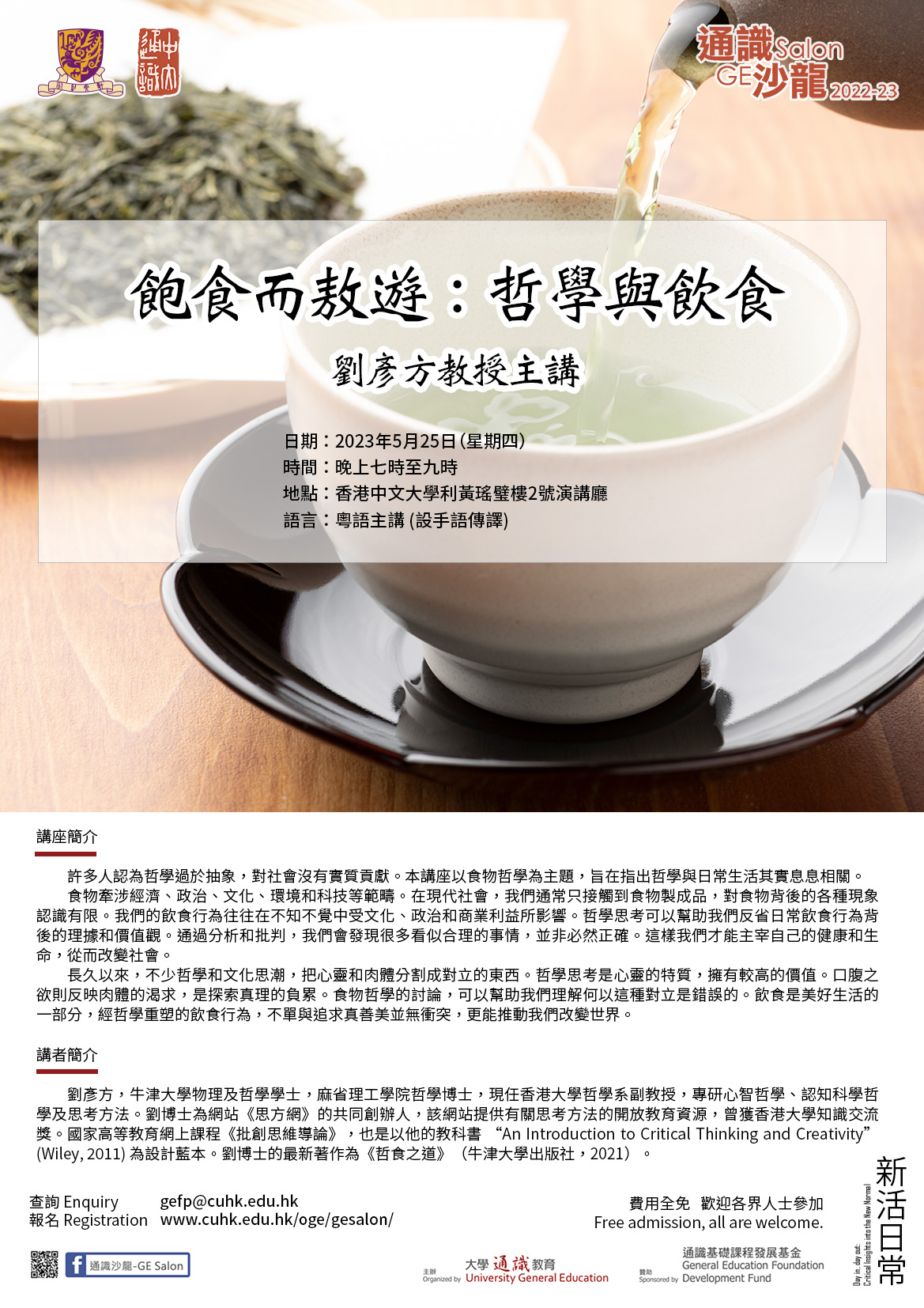 2022-23 Day in, day out: Critical Insights into the New Normal
2022-23 Day in, day out: Critical Insights into the New Normal The Hitchhiker’s Guide to the Metaverse
Speaker: Prof. HUI Pan自 90 年代互聯網普及以來,網絡空間不斷發展。人們創建了各種以計算機為媒介的虛擬環境,包括社交網絡、視頻會議、虛擬 3D 世界(例如 VR Chat)、增強現實應用程序(例如 Pokémon GO)和非同質化代幣遊戲(例如 Decentraland)等。這樣的虛擬環境,雖然不是永久的且互相之間沒有聯通,但已經為我們帶來了不同程度的數字化轉型。創造「元宇宙」一詞是為了進一步促進我們物理生活各個方面的數字化轉型。元宇宙的核心是將沉浸式互聯網視為一個巨大的、統一的、持久的和共享的領域。雖然在擴展現實、5G 和人工智能等新興技術的推動下,元宇宙可能看起來有些未來主義,但我們網絡空間的數字「大爆炸」並不遙遠。本講旨在提供一個全面的框架,在最先進的技術和元節生態系統的維度下檢查最新的元宇宙發展,說明數字「大爆炸」的可能性,並提出具體的元宇宙發展研究議程。同時我們也會嘗試討論元宇宙會為人類社會帶來什麼隱患風險,包括信任、知情、同意、問責和社會治理等方面。
